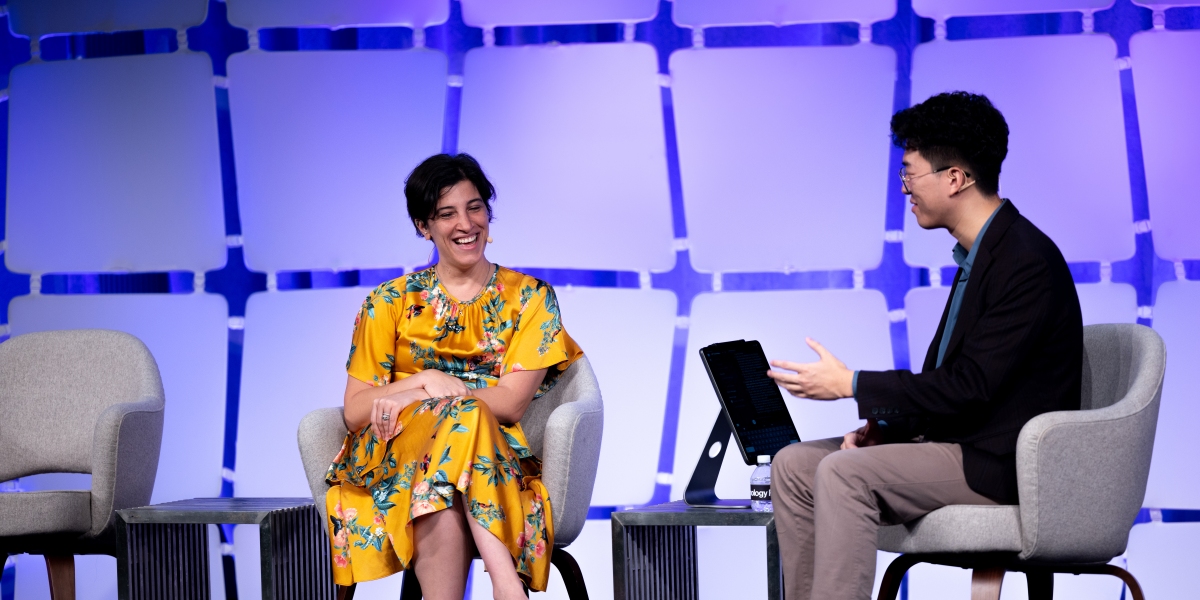
First up is Nubar Afeyan, CEO of Flagship Pioneering. He’s worked on developing covid-19 vaccines and boosters and is the co-founder and chairman of the board of Moderna, which has pioneered the messenger RNA vaccine, which luckily came of age just in time to help address the global pandemic.
12.30 That’s it for the first half of today’s agenda! We’re going to take an hour’s lunch break now, and when we return I’m going to hand you over to my colleague, editorial fellow Hana Kiros. See you shortly!
12.20 Elon Musk’s takeover of Twitter represents a really interesting time in the platform’s history, says DiResta. “My sincere hope for Elon is that he brings on talented people who have a lot of expertise. We shouldn’t want to see social media turned into a homogenous environment, differentiation is really important.”
12.15 There’s a lot of challenges with how we assess the impact of actors using social media to observe and amplify opinions, DiResta says.
These people aren’t trying to persuade somebody to a new way of thinking, necessarily, they’re trying to amplify opinions and views they already held, she explains. While there are perceptions of propaganda and influence, particularly in terms of it having a persuasive effect on human users, this amplification is more prevalent these days.
There are covert fake accounts on social media designed to produce tweets specifically for the purpose of being embedded in state media news stories as representative as, for example, the way Americans think, she adds.
“The point is not the bots—the bots are a tool of a way of pushing the message.”
12.00 Next up, we’re going to talk influencers, and who’s in charge of them, exactly. Renée DiResta is the technical research manager at the Stanford Internet Observatory, examining how narratives spread across social and media networks.
11.53 The fact that chip technologies are clustered in a handful of factories and companies in a handful of countries is neither natural nor just, says Cheng.
“If countries or societies see technologies and knowledge as a tool of geopolitics in the sense of national competition, then humanity has already lost,” she adds.
11.40 There are still academic interactions between the US and China, and a ton of collaboration between AI researchers on the authorship of papers, despite the ongoing chip war, says Sheehan.
“Even though we’re seeing a lot of very direct connections and collaborations get severed, there’s still a lot of intellectual engagement.”
Although the Chinese tech industry has a reputation for intense secrecy, a lot of misunderstanding about what Chinese platforms are up to is because the US tech industry doesn’t know itself, he adds.
“The average person in, say, a big platform company [such as Facebook, Twitter or YouTube] in the US doesn’t think they need to be keeping up with what’s happening at Tencent or Baidu, or whatever,” he says.
